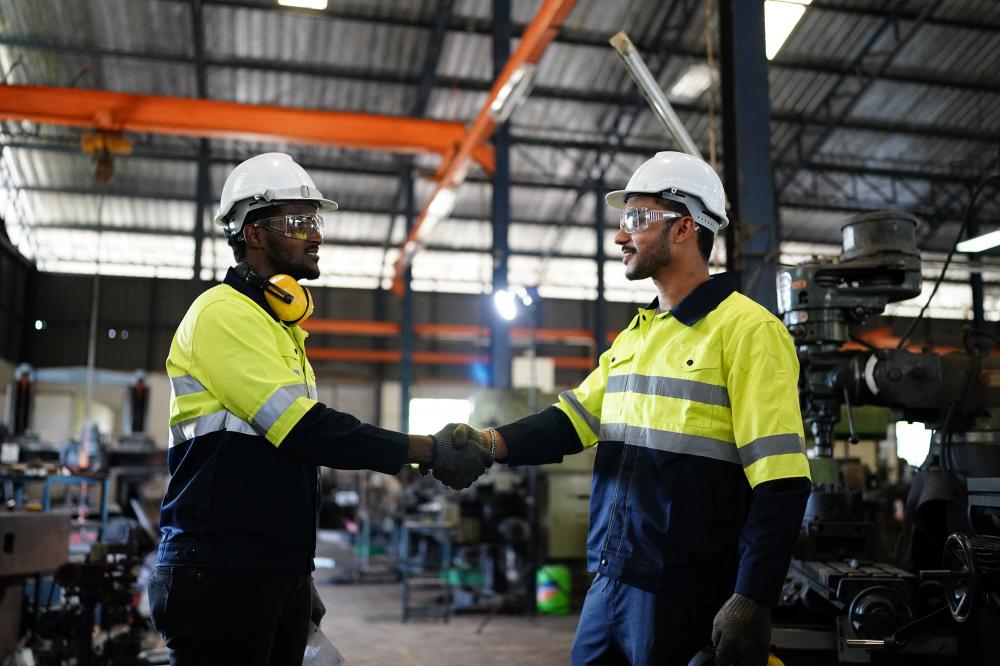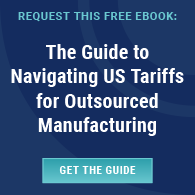
Contract Manufacturing: Choosing an Expert
Contract manufacturing companies provide an invaluable service in today’s global economy by offering specialized production capabilities that many companies might not possess in-house. Contract manufacturing involves partnering with a manufacturing firm to produce goods, allowing a company to focus its resources on core activities such as marketing, research, and development. This business model is especially favored by companies aiming to reduce production costs and enhance overall efficiency.
Personal experience with contract manufacturing has shown that companies can save significantly by outsourcing production. By leveraging external expertise, companies can increase their competitiveness and bring products to market more swiftly. Working with contract manufacturing companies has allowed numerous firms to gain access to advanced technologies and skilled labor, which otherwise might be unattainable or cost prohibitive.
Advantages of Partnerships
The decision to work with contract manufacturing companies is often driven by several key benefits. One of the most significant advantages is cost savings. Companies can significantly reduce labor costs, as well as the expenses associated with building and maintaining production facilities. Contract manufacturers can offer improved economies of scale by producing for multiple clients, thereby lowering unit production costs.
Access to specialized skills and technology is another major benefit. Contract manufacturers are often experts in specific manufacturing processes and can produce at a quality level that might be difficult for a less-experienced company to achieve. By employing contract manufacturing, a company can focus on its core operations such as design, sales, and marketing, which can lead to greater innovation and business growth.
Another advantage lies in the flexibility contract manufacturing offers. Companies can swiftly ramp up production to meet sudden demand spikes without the financial burden of expanding facilities or hiring additional staff. This agility can be a decisive factor in maintaining a competitive edge in fast-paced industries.
Navigating Potential Risks
Despite the numerous advantages, engaging with contract manufacturing companies does come with potential risks. One of the primary concerns is the loss of control over the manufacturing process. When production is handled externally, companies must rely on a third party’s quality standards and production timelines.
From personal experience, ensuring a strong relationship with the contract manufacturer is key to mitigating these risks. Effective communication, clear expectations, and frequent quality checks can help maintain the desired level of control. Companies should also ensure that intellectual property is adequately protected through stringent contracts and legal agreements.
There are also risks associated with supply chain disruptions, which can affect production schedules. Choosing established and reputable contract manufacturing companies with a proven track record of on-time deliveries can help alleviate this concern. A diversified sourcing strategy that includes multiple partners across various geographic locations can also provide added resilience.
Industries Embracing Contract Manufacturing
Contract manufacturing companies California serve a broad spectrum of industries, each leveraging the model for unique benefits. In the electronics sector, companies like Altraco support businesses by manufacturing intricate components such as circuit boards and semiconductor devices. The pharmaceutical industry also extensively relies on contract manufacturing organizations to produce drugs at scale, ensuring compliance with regulatory standards while managing costs.
Other sectors, including automotive, aerospace, and consumer goods, also adopt contract manufacturing to enhance operational efficiency and expedite time-to-market. Companies can focus on designing innovative products while entrusting manufacturing to expert partners capable of meeting stringent technical requirements.
Altraco: A Reliable Partner
Altraco, with over 35 years of experience, has established itself as a leader among contract manufacturing companies. They offer a comprehensive suite of services including casting, extrusion, and plastic molding. With a network of factories across multiple countries, Altraco adeptly manages international manufacturing challenges, such as tariffs and trade compliance, ensuring smooth and economical operations for their clients.
By maintaining a high rate of on-time deliveries and average client cost savings of 10% to 50%, Altraco has earned the trust of Fortune 500 companies. Their approach combines strategic sourcing with meticulous supply chain management, enabling clients to focus on growth and innovation rather than production logistics.
Overcoming Supply Chain Challenges
Supply chain disruptions are an ever-present concern for organizations relying on contract manufacturing companies. Altraco has excelled in navigating these challenges by cultivating long-term relationships with reliable factory partners. Their ability to strategically source materials from a global network ensures minimal disruption even in volatile markets.
In handling tariffs and trade regulations, Altraco uses its expertise to develop cost-effective solutions that mitigate risks for clients. By optimizing logistics and decreasing lead times, they help businesses maintain continuity and service levels, even amid shifting international trade landscapes.
This proactive strategy has been recognized by major industry publications, highlighting Altraco’s role as a forward-thinking partner capable of adapting to and overcoming modern supply chain hurdles.
In anecdotal cases, Altraco’s swift response to unexpected disruptions has provided peace of mind to clients, allowing them to focus on strategic objectives rather than firefighting supply issues.
Strategies for Successful Outsourcing
When choosing contract manufacturing companies, businesses should develop a comprehensive strategy to maximize the benefits of outsourcing. A critical first step is identifying core competencies. By understanding what truly differentiates the company, businesses can determine which aspects of production to outsource and which to retain in-house.
It’s essential to perform thorough due diligence on potential partners. Evaluating their track record, financial stability, and alignment with your company’s values is crucial for selecting a reliable manufacturer. Establishing a clear, open line of communication helps in setting and managing expectations, ensuring a successful partnership.
Another stratagem involves developing contingency plans to handle potential disruptions. By anticipating and planning for various scenarios, companies can position themselves to react swiftly and efficiently to changes in the business environment.
From experience, establishing trust and transparency with contract manufacturing companies can significantly enhance the partnership, fostering a collaborative atmosphere where both parties work towards mutual success.
Future Trends in Contract Manufacturing
The landscape of contract manufacturing is evolving with technological advancements and changing business practices. Automation and digitalization are playing increasingly prominent roles within contract manufacturing companies. These innovations improve precision, quality, and speed of production, providing companies with more agile and responsive manufacturing options.
Sustainability is also becoming a significant focus. As businesses and consumers alike push for greener practices, contract manufacturers are adopting eco-friendly processes and materials. This trend not only helps protect the environment but also enhances brand reputation and meets the ethical expectations of modern consumers.
The integration of artificial intelligence into contract manufacturing operations is allowing companies to analyze production data more effectively, optimize processes, and reduce waste. Future-oriented contract manufacturing companies like Altraco are at the forefront of these trends, setting new standards for efficiency and innovation in the industry.
- Investment in green technologies and processes
- Enhanced use of AI for process optimization
- Increased emphasis on digital transformation
What is a contract manufacturing company?
A contract manufacturing company is a business that partners with other companies to produce parts or complete products. This allows the client company to focus on core activities like marketing, research, and development, while leveraging the manufacturing expertise of the contractor. The client provides the specifications, and the contract manufacturer executes the production, often resulting in lower costs and faster time-to-market. For example, a tech startup may use a contract manufacturer to build their electronic components while they focus on software and user interface design. This approach not only reduces overhead but can also enhance product quality by working with specialized manufacturers.
Who is the world’s largest contract manufacturer?
The world’s largest contract manufacturer is Foxconn, also known as Hon Hai Precision Industry Co., Ltd. Foxconn is renowned for its vast scale and extensive facilities, producing electronics for major global companies including Apple, Microsoft, and Sony. This giant has set the bar in manufacturing efficiency and capacity, often serving as a benchmark for others in the industry. While Foxconn is a leader in the electronics sector, each industry has its top players, such as Lonza in pharmaceuticals or Magna International in automotive manufacturing.
How much do contract manufacturers make?
The earnings of contract manufacturers can vary significantly based on the industry, the scale of operations, and the complexity of the products manufactured. Generally, larger firms like Foxconn generate billions in revenue annually due to their substantial client bases and production volumes. Smaller to mid-sized contract manufacturers may earn less but often operate with leaner margins by offering specialized services or catering to niche markets. For instance, Altraco has grown its reputation by providing cost-efficient manufacturing solutions, helping clients save between 10% and 50% on production costs, thus securing a steady revenue stream from satisfied long-term customers.
What are the three forms of contract manufacturing?
There are generally three forms of contract manufacturing: turnkey, consignment, and partial manufacturing. In a turnkey setup, the contract manufacturer handles the entire production process from start to finish, including sourcing materials and components. Consignment manufacturing involves the client providing the necessary materials, and the contractor simply assembles the final product. Partial manufacturing is a combination, where certain aspects of production are outsourced while others remain in-house. Each model has its benefits, depending on the company’s resources and production needs. For example, a company focusing on innovation might opt for turnkey solutions to keep resources dedicated to research and development.
What advantages do partnerships with contract manufacturers offer?
Partnerships with contract manufacturers offer numerous advantages, including cost savings, access to specialized skills, and increased production flexibility. By outsourcing production, companies can reduce labor costs and avoid the expenses associated with maintaining large production facilities. Furthermore, contract manufacturers bring specialized expertise and advanced technologies that can elevate product quality. The flexibility to scale production swiftly with changing demand is another key benefit. Altraco, for instance, supports its partners by providing reliable, on-time delivery and helping them navigate international trade complexities, enhancing their competitive edge with cost-effective, high-quality manufacturing solutions.
Resources
- National Institute of Standards and Technology (NIST) – The National Institute of Standards and Technology is a non-regulatory agency of the United States Department of Commerce. NIST’s mission is to promote U.S. innovation and industrial competitiveness by advancing measurement science, standards, and technology.
- Manufacturing.gov – Manufacturing.gov is a resource provided by the U.S. government that offers information on various manufacturing topics, including policies, programs, and initiatives related to manufacturing in the United States.
- National Center for Biotechnology Information (NCBI) – The National Center for Biotechnology Information is part of the National Institutes of Health. NCBI provides access to biomedical and genomic information, tools, and resources to support research and education in the life sciences.


